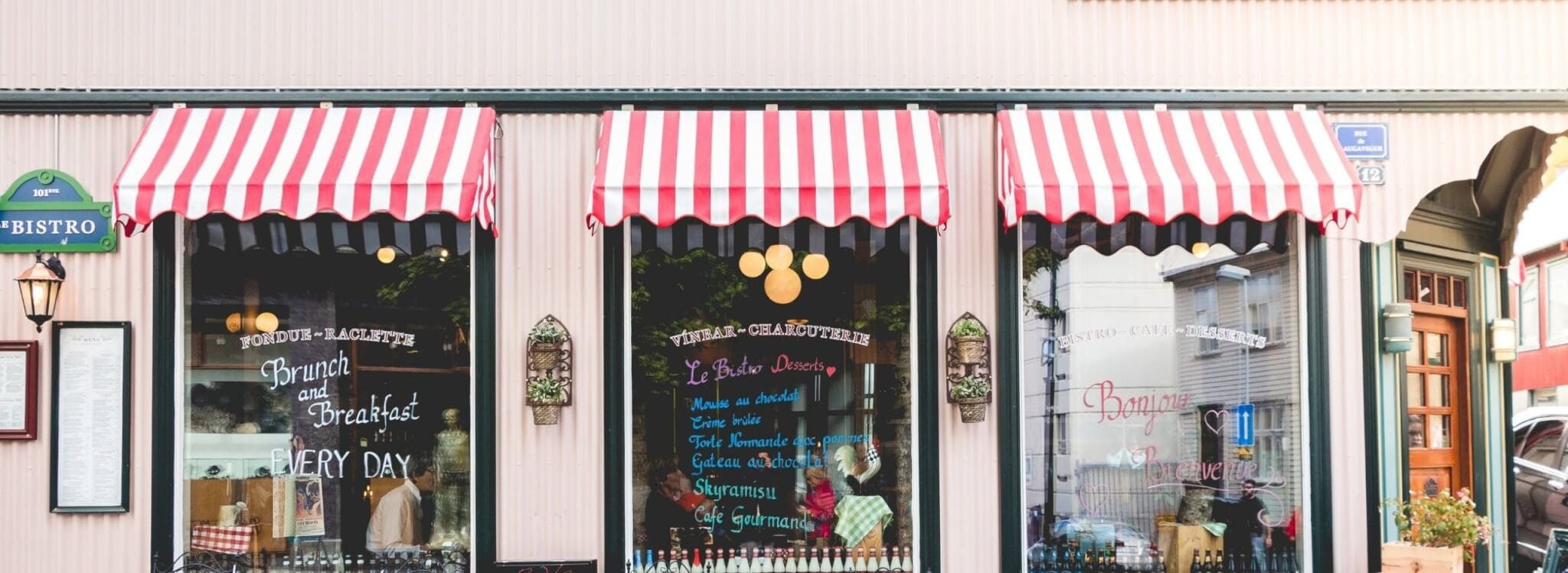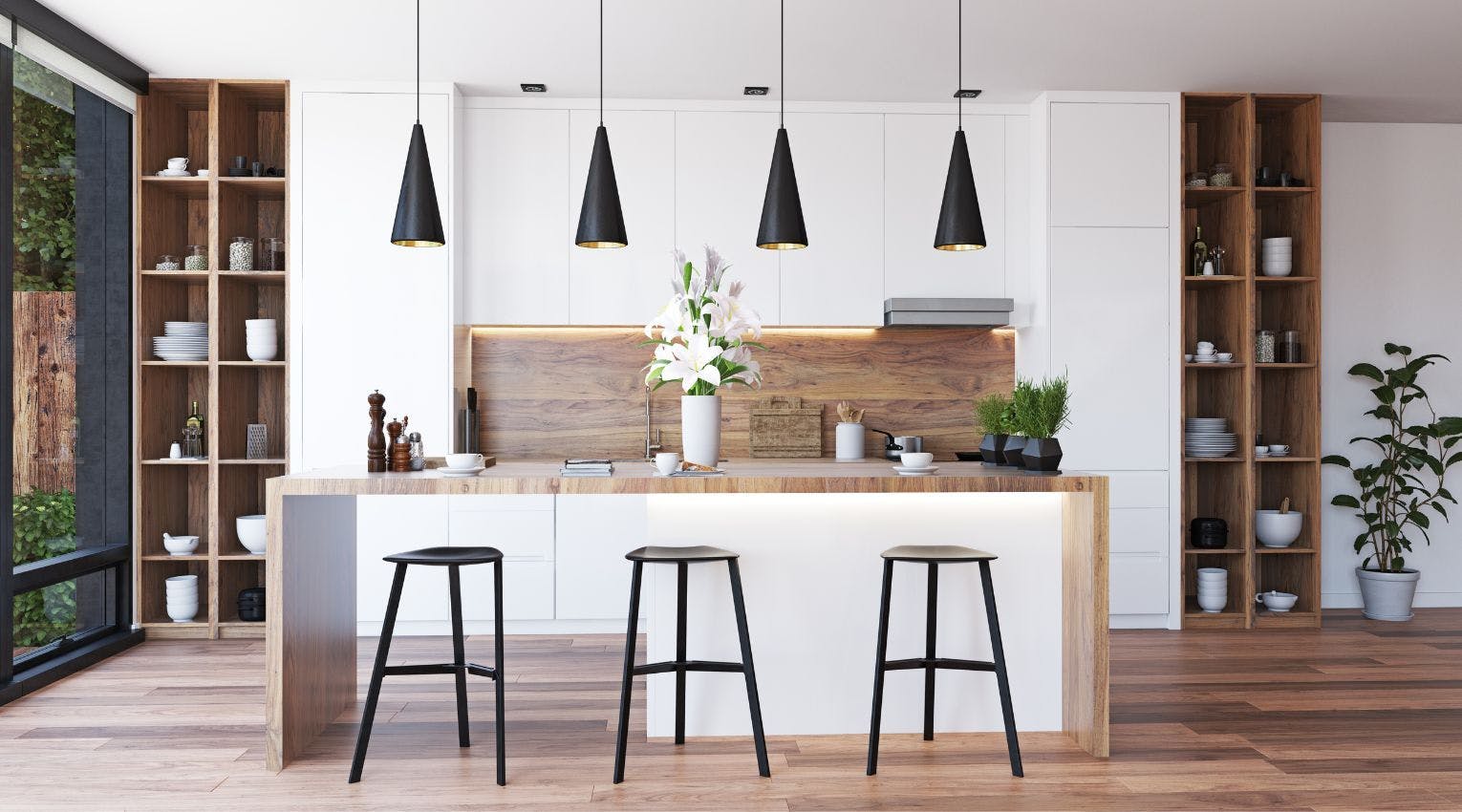Stories of Perseverance: Owning a Small Business in a Pandemic

Approximately 200,000 more businesses closed their doors in the first year of the COVID-19 pandemic than in a typical year. That’s one-third more closures than the annual average of 600,000 prior to the pandemic.
In that time, one in four small businesses received financial assistance via the Paycheck Protection Program (PPP), a business loan program established by the U.S. government to help small businesses impacted by the pandemic cover payroll and applicable overhead.
Yet, many of the financial struggles small businesses faced are unaccounted for. business owners tightened their budgets, reduced their own take-home pay, and dipped into emergency funds and personal savings to cover the costs of transforming their businesses — purchasing the equipment they needed to reopen safely and provide support for their employees.
Two years later, nearly 85% of the businesses that temporarily closed their doors have reopened, though a typical business day looks a bit different than it did two years ago for many — whether it’s a significant change in staff size, a shift in products, or a heavy lean into online ordering and curbside services.
While community members have shown up in droves to support small businesses throughout the pandemic, the challenges business owners have faced to stay afloat have frequently taken place behind closed doors.
In observance of Small Business Week, we connected with different small business owners across the country — and across industries — to better understand what it’s taken to persevere through the past two years and come out on the other side stronger than before.
These are their stories.
Meet Nahika
Nahika Hillery is an Austin, Texas-based chef and the owner of Kreyol Korner, a food truck and catering company. She left the medical industry in 2017 to start her business with the mission of bringing Haitian culture to the foodie capital.
“2020 was like the beginning of our peak year in business,” says Hillery. “I’m talking our peak year, like bookings after bookings between corporate catering, private catering, and also weddings. So when the pandemic hit, I just received hundreds of emails of cancellations and my heart was breaking every single day to have to go into my email and see the cancellations and brides asking for refunds. And it just became a huge financial mess at that point to figure out what to do with losing so many gigs. My account was just literally depleting at the time to cover everything.”
Like so many other business owners, Hillery closed her doors and kept her eyes on the headlines, waiting for the pandemic to blow over. When one month turned into two, she got to thinking.
“I consider myself to be really good at pivoting. I can adapt well. So I’m like, how do I keep the business alive? Maybe in a different form that people are not used to. So I started to meal prep. It started off with my neighborhood. I just made a simple menu. And my neighbors came through; I was feeding 20 different families. My neighbors would tell their friends who would tell their friends and it ended up expanding all over Austin.”
While the food truck is still closed for walk-up service, Nahika’s team of four has grown to nine, and she joined Cook Unity, a chef-to-customer platform, to grow her food prep services.
“The pandemic helped me understand that there’s other ways to connect people with the culture outside of just serving food from the truck. It’s taught me to always be ready for change.”
Meet Matt
Matt Wood decided to open his own coffee shop because he knew he could deliver a product and a coffee community that the big chains simply couldn’t. Starting with a single shop on the South Shore of Massachusetts, Restoration Coffee offered sustainable specialty coffee by partnering with importers that worked directly with farmers.
His shop took off quickly, and one location became two. When the pandemic hit, Wood knew he needed to adapt quickly.
“At the very beginning of COVID, when that first started, it turned into a ghost town really
quickly,” says Wood. “We ended up closing for two days strictly because we wanted to reformat the shop. Our East Bridgewater location was actually set up really nicely, where we had sliding windows in the front. So we locked the front door and we did online orders only.”
He knew that the move to online orders would be a gamble. It meant credit card fees, dealing with customers who were used to paying with cash, and potentially losing out on tips. But the gamble paid off.
“It was actually nice being able to implement online ordering. We’d have 15 minutes to be able to get people’s orders ready, rather than them standing in the line and causing backup. So it really worked out well.”
The local outpouring of support for small businesses like Restoration Coffee actually allowed Wood to expand to a third location, and today he employs 35 people among his three shops.
“I think people really felt like they were helping. They were buying gift cards, they were really just trying to support us to keep going, because they could see a lot of bigger companies were collapsing at this time.”
Meet Christine
In December of 2015, Christine Azar took the leap from the corporate finance world into small business, opening a chocolate shop that specializes in fine, ethically-sourced chocolates.
By 2020, Azar Indulgences had three locations in Portland, Oregon, offering chocolate, coffee and wine, and she was thinking about franchising when the pandemic suddenly forced her doors closed and put her plans on hold.
“I closed my stores March 13th, 2020, and we didn’t reopen until November 15th of 2020,” says Azar. “Being closed for that period of time was not only heartbreaking because I wasn’t able to do what I love — because I love being in my store. And of course the financial impact… I wasn’t making money.”
Azar spent a lot of her downtime deciding what her next move would be. Her shops were located inside hotels, which added challenges to opening back up.
In a weird twist of fate, one of the hotels’ restaurants wasn’t unable to reopen, so Azar was approached with the opportunity to reopen as a chocolate shop with breakfast offerings, and she took it.
“We’re now known for our breakfast sandwiches, which, never in a million years did I think that was my thing,” says Azar. “I’m grateful because I think people understand that small business is important. It’s what keeps the economy going.”
Meet Andrew
For Andrew Hawes and his business, the pandemic created an entirely different struggle.
Hawes and his partner took over as co-owners of RJ Bradley’s Skis and Bikes shop in Littleton, Massachusetts just two months before the pandemic started — a business that had been around since 1955, and they had some impressive shoes to fill.
In the infancy of their ownership, the pandemic hit.
“We were the lucky few… because we were a bike and ski shop — bikes were deemed an ‘essential business’ because they’re a mode of transportation,” explains Hawes, “so there was about a two-day period where we just had to figure out how to reinvent the business in
some ways, and address the pandemic and some of the new realities of retail.”
Hawes closed down the shop for just two days, while they figured out how to reopen in a way that was safe for their customers and employees. The supplies, such as cleaning agents and masks, weren’t burdensome, but the way that they worked would need to evolve. Fitting ski boots takes place in close proximity.
“We needed to buy twice as many chairs, twice as many fitting stations,” says Hawes.
Families stuck at home during the pandemic were looking for opportunities to get outside and get active — and RJ Bradley’s felt and saw immediate impacts.
“The bike business has drastically grown to the tune of about six x. The ski business… we’ve basically doubled it,” says Hawes.
But that’s where the challenges arise. The jump in demand coupled with the drop in workforce has made day-to-day operations a challenge.
“We’ve been burning the midnight oil, you know, it’s been really hard and frankly, a bit of a strain on all of us personally to keep this thing alive and thriving. We’re truly overworked right now.”
Meet Joanne
At the start of the pandemic, Joanne Krapf was in one of the industries that took perhaps the hardest hit: meetings and travel. As the owner of a meeting center, Krapf managed seven conference spaces that were regularly booked nine months in advance.
When the pandemic hit, she waited to see if the meeting industry would bounce back. She quickly saw the writing on the wall, and Krapf made a major pivot to focus on the creative outlet she’d turned into her side hustle: Happy Monkey Gifts.
“We ended up closing the [meeting] business in September of 2020 and Happy Monkey became a full hustle. So that became my passion. And I love the creative side of it. I love bringing joy to people,” says Krapf.
Her online gift shop offers a wide variety of products, from tumblers and cups to luggage tags, magnets, name tags, and candles.
Shifting from in-person events to a business that’s largely online presented some unique challenges.
“Customer service became really important, because customers can go anywhere. I had to get on Etsy and push that, but I love marketing and business development and that’s kind of my background.”
The pandemic provided Krapf the unique opportunity to lean into some of the creative hobbies she’d always been interested in: photography, graphic design, crafting, and marketing.
Two Years In
When it comes to the support of the community, these five business owners had much of the same things to say: their neighbors rallied, showed up, and found ways to support their businesses in what sometimes felt like the end; purchasing gift cards, spreading the word over social media, and practicing immense patience as businesses pivoted and found their ways back.
This Small Business Week, we thank the business owners that persevered and came out the other side stronger than ever.
For those businesses still struggling to take off or recoup losses from the last two years, there are myriad funding options to consider. Our small business resources provide education on where to find grants, loans, and other financing solutions to fit your businesses needs.



